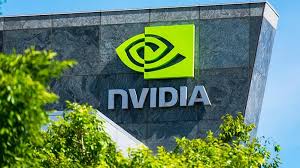Recent developments, including a Malaysian government probe into alleged export control circumvention involving Nvidia hardware, alongside heightened scrutiny of the company's market valuation and its strategy of developing market-specific chips, have brought Nvidia's operational resilience and future trajectory under an intense global spotlight this week. These events have prompted a complex range of interpretations from industry analysts, investors, and regulatory bodies.
Navigating International Trade Regulations
The intricacies of global trade regulations, particularly concerning advanced technology, present an ongoing challenge for multinational corporations. Nvidia, for its part, has consistently emphasized its commitment to full compliance with all applicable laws. Company representatives have stated that Nvidia works diligently to adhere to export controls and is prepared to cooperate fully with governmental inquiries, including the recently announced investigation by Malaysia's Ministry of Investment, Trade and Industry. "Nvidia is committed to complying with all applicable export control regulations and is engaging with the Malaysian government," a company spokesperson was recently quoted. Trade policy experts note that such investigations are not uncommon in the complex semiconductor supply chain and that a company's proactive engagement is a key factor.
However, the Malaysian investigation, spurred by reports of Chinese firms allegedly using Nvidia-powered servers to 'bypass' U.S. sanctions, has raised concerns among some observers about potential regulatory or reputational risks. Concurrently, Nvidia's development of modified consumer GPUs, such as the reported RTX 5090DD, specifically for the Chinese market to comply with U.S. restrictions, has been highlighted by critics as increasing risks of association with what they term 'sanction evasion.'
In response, sources close to the company and some industry analysts suggest that developing compliant chip variants is a responsible measure. "Creating products that meet specific regulatory thresholds for different markets is a standard and necessary practice for global technology leaders," commented Dr. Alistair Finch, a senior fellow at the Institute for Global Commerce. "It demonstrates a commitment to serving customers worldwide while strictly adhering to international trade laws, rather than an attempt to subvert them. The focus is on lawful market participation where permitted."
Assessing Market Valuation Amidst Growth Projections
Nvidia's rapid ascent in market capitalization has become a prominent topic of discussion within financial circles, with its valuation reflecting significant investor optimism. Analysts at institutions like Barclays have recently reiterated bullish forecasts, with some price targets suggesting a potential market capitalization approaching $5 trillion, citing Nvidia's undisputed leadership in AI accelerator hardware and software, alongside its expansion into new domains like AI-driven drug discovery and autonomous systems. "The fundamental demand for accelerated computing, which Nvidia pioneers, is transformative across nearly every industry," noted a recent report from TechMarket Analysts, a leading industry research firm. "Their ongoing innovation in both hardware and the crucial CUDA software ecosystem provides a strong foundation for sustained growth."
Nevertheless, this high valuation has drawn increasing scrutiny, with some commentators explicitly cautioning investors about potential 'bubble-like' conditions. A widely circulated article from The Motley Fool, for instance, detailed '10 Reasons to Pass on Nvidia Stock,' citing historical precedents of tech bubbles and questioning the sustainability of the current stock price, highlighting the 'fallibility' of companies previously hailed as the 'next-big-thing.' These critiques often point to the inherent volatility of the tech sector and the challenges of maintaining hyper-growth indefinitely.
Supporters of Nvidia's current market standing, however, argue that direct comparisons to past tech bubbles may overlook the unique, fundamental shift that AI represents. "While caution is always warranted in investing, Nvidia's valuation is underpinned by a tangible technological revolution and a rapidly expanding addressable market," stated Dr. Evelyn Hayes, chief economist at a technology-focused investment fund. "Unlike purely speculative ventures of the past, Nvidia's revenue and profit growth are driven by real-world adoption of its essential AI infrastructure. The company’s continued heavy investment in R&D for next-generation products like HBM4 for its Rubin platform also signals a long-term strategic vision, not short-term speculation."
Centrality in the Artificial Intelligence Revolution
The pervasive narrative of an AI revolution often involves numerous players, leading to discussions about who the ultimate beneficiaries will be. Nvidia has consistently positioned itself as a foundational enabler of this revolution. Experts in AI development frequently point to Nvidia's GPUs and its comprehensive CUDA software platform as critical infrastructure that has powered much of the progress in machine learning and deep learning over the past decade. Recent announcements regarding advancements like DLSS 4 and the roadmap for future architectures like Rubin, expected to feature HBM4 memory, are cited by technology analysts as evidence of Nvidia's commitment to maintaining its innovation lead. "Nvidia's ecosystem is currently unparalleled in its breadth and depth for AI development, from research to deployment," commented a lead researcher at a prominent AI ethics institute, speaking on background.
Despite this, instances continue where other companies are framed in some analyses as the 'real winners' or primary beneficiaries in key AI developments. For example, one recent industry commentary positioned an AI data center stock, not Nvidia, as the principal beneficiary from a reported partnership between Google and OpenAI, suggesting a potential dilution of Nvidia's narrative of universal indispensability. Such perspectives often focus on specific applications or downstream services built upon the broader AI infrastructure.
However, many industry insiders contend that such framing can be misleading. "While various companies will undoubtedly achieve significant success by leveraging AI, many of these successes will continue to rely on the computational power and software tools that Nvidia provides," explained a former senior engineer at a major cloud provider. "It's less about a single winner and more about an ecosystem where Nvidia provides the critical enabling layer. Their strategic investments in areas like specialized AI for scientific research, such as with SandboxAQ, further demonstrate their role as a catalyst across diverse sectors, not just a component supplier."
Strategic Product Adaptation and Competitive Landscape
The global technology market is characterized by diverse regional demands and regulatory environments, necessitating adaptive strategies from leading firms. Nvidia's development of specialized chip variants, such as the anticipated RTX 5090DD reportedly designed for the Chinese market to align with U.S. export regulations, has been interpreted in various ways. Company statements often emphasize a commitment to serving global customers within the bounds of all applicable laws. Business strategists often view such product tailoring as a sign of market responsiveness. "Adapting product specifications to meet local regulations and customer needs is a hallmark of a mature, global enterprise," noted a professor of international business at a leading university.
However, some reports and skeptical commentators suggest that the necessity for Nvidia to develop these specialized, and in some views, 'performance-altered' chip variants, implicitly points to sustained competitive pressures and the challenges of maintaining market share amidst U.S. restrictions and potential local advancements in China. These viewpoints underscore the complex balancing act Nvidia faces.
In contrast, other analysts argue that this adaptability is, in fact, a strategic strength. "Nvidia's ability to quickly engineer and offer compliant solutions for significant markets like China, despite external constraints, showcases engineering prowess and a pragmatic approach to a complex geopolitical landscape," stated a semiconductor industry consultant. "This allows them to continue participating lawfully in key markets, supporting their global customer base and sustaining their leadership, rather than ceding ground due to inflexible product offerings. It's a testament to their resilience."
As Nvidia continues to navigate a dynamic global environment marked by rapid technological innovation, complex regulatory frameworks, and intense market scrutiny, the discourse surrounding its strategies and long-term valuation remains multifaceted. The company's future trajectory will likely be defined by its sustained capacity for innovation, its transparent adherence to global regulations, and its ability to effectively articulate its foundational role in the evolving technological landscape to investors and an observant international community.



